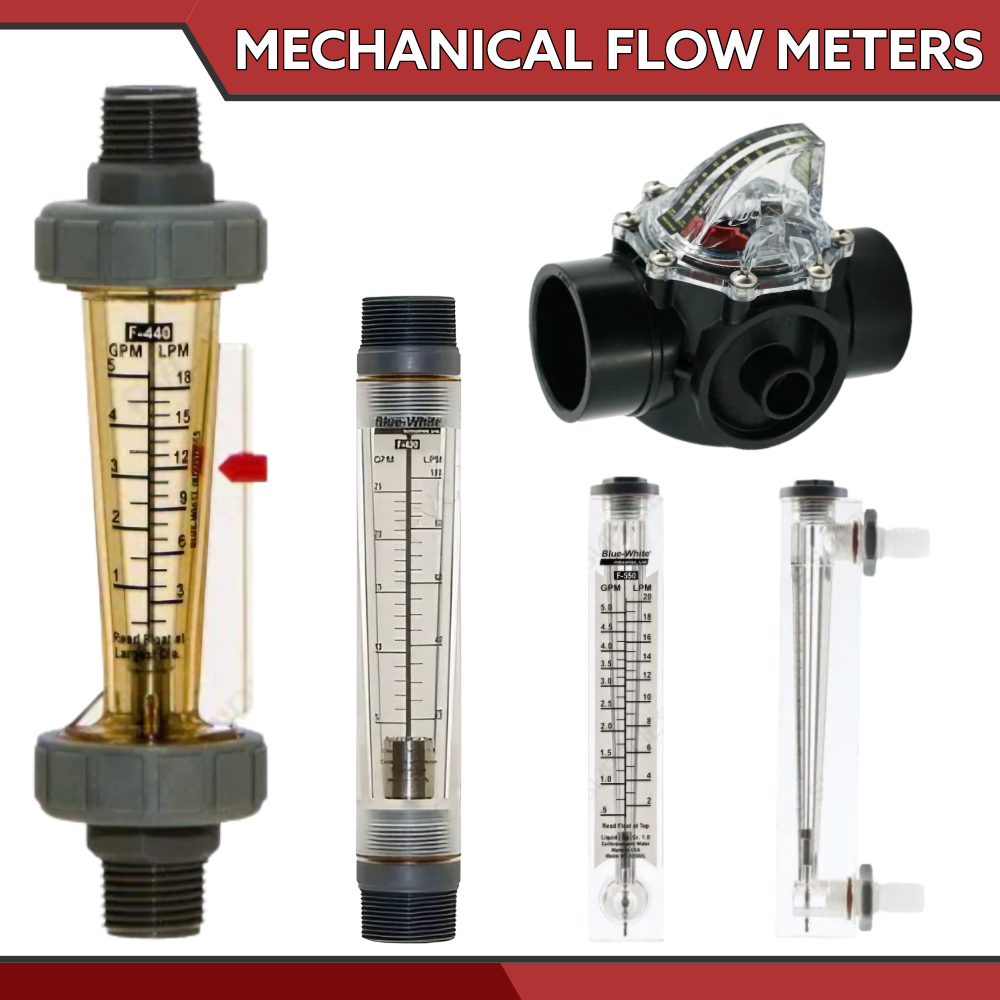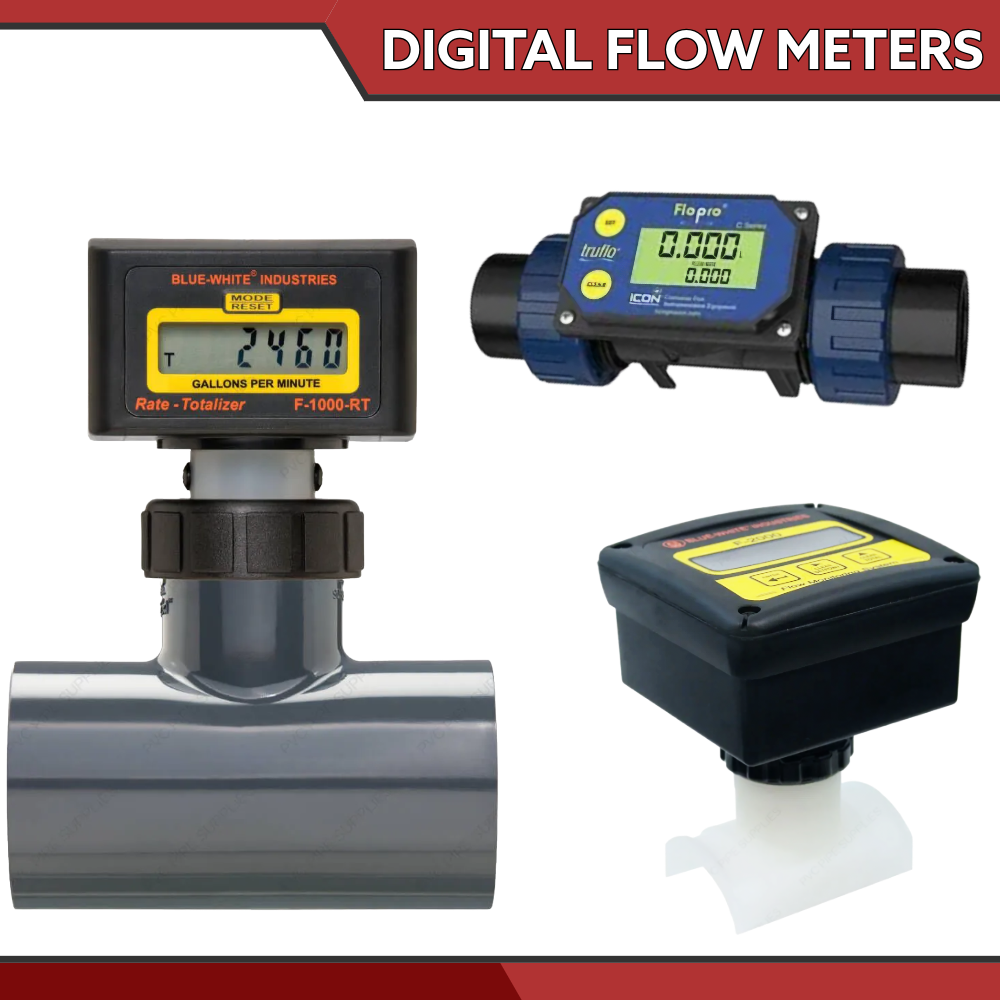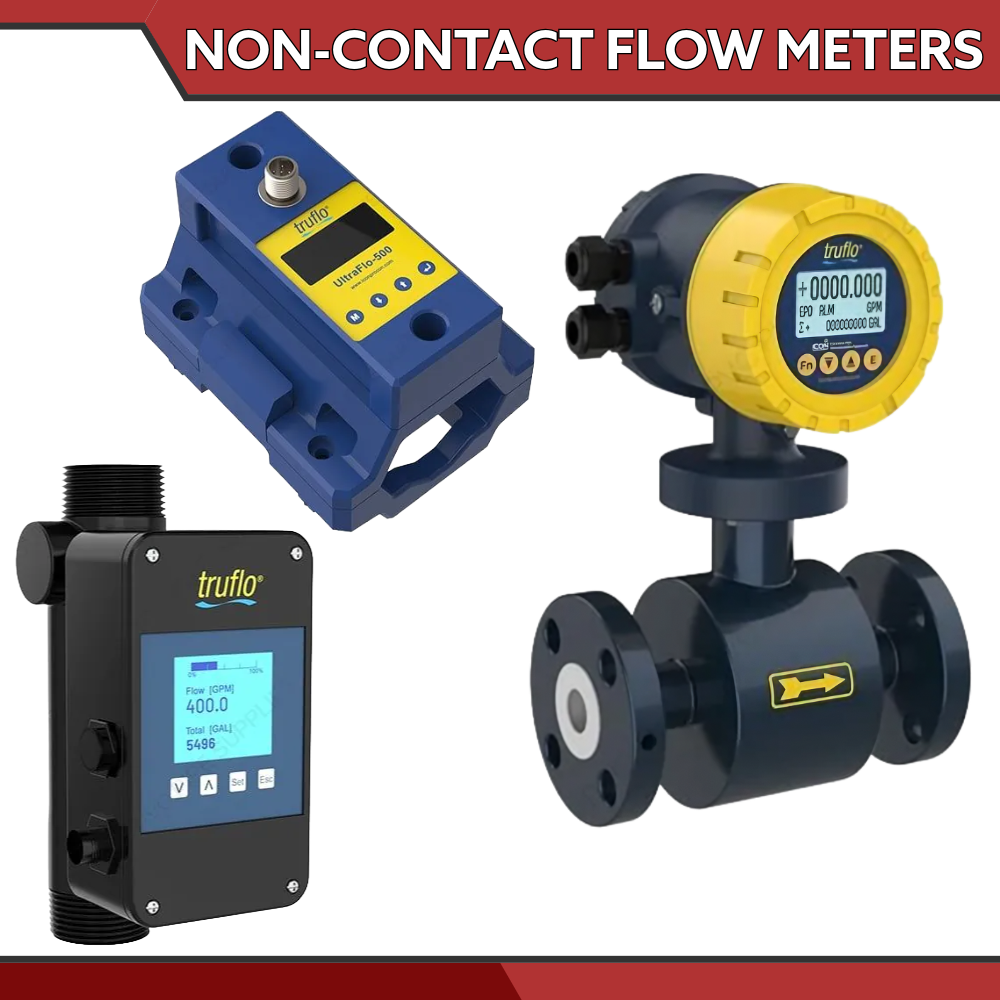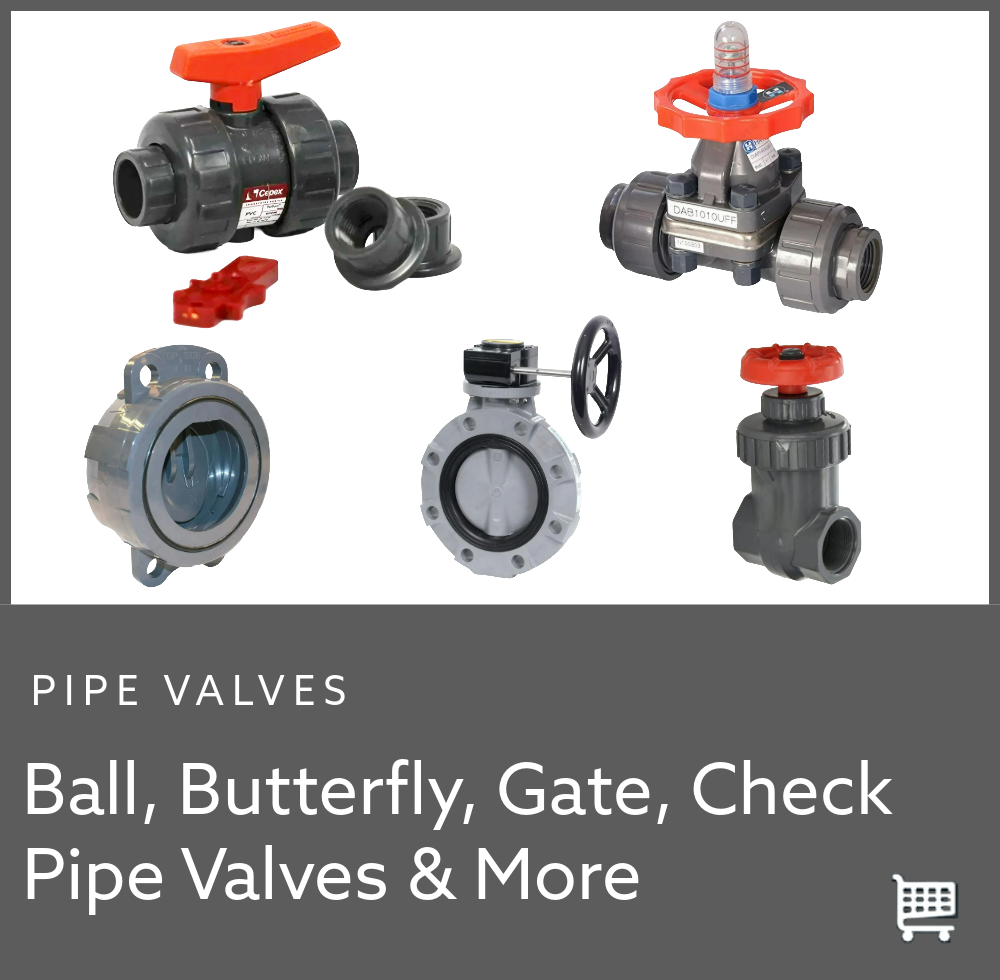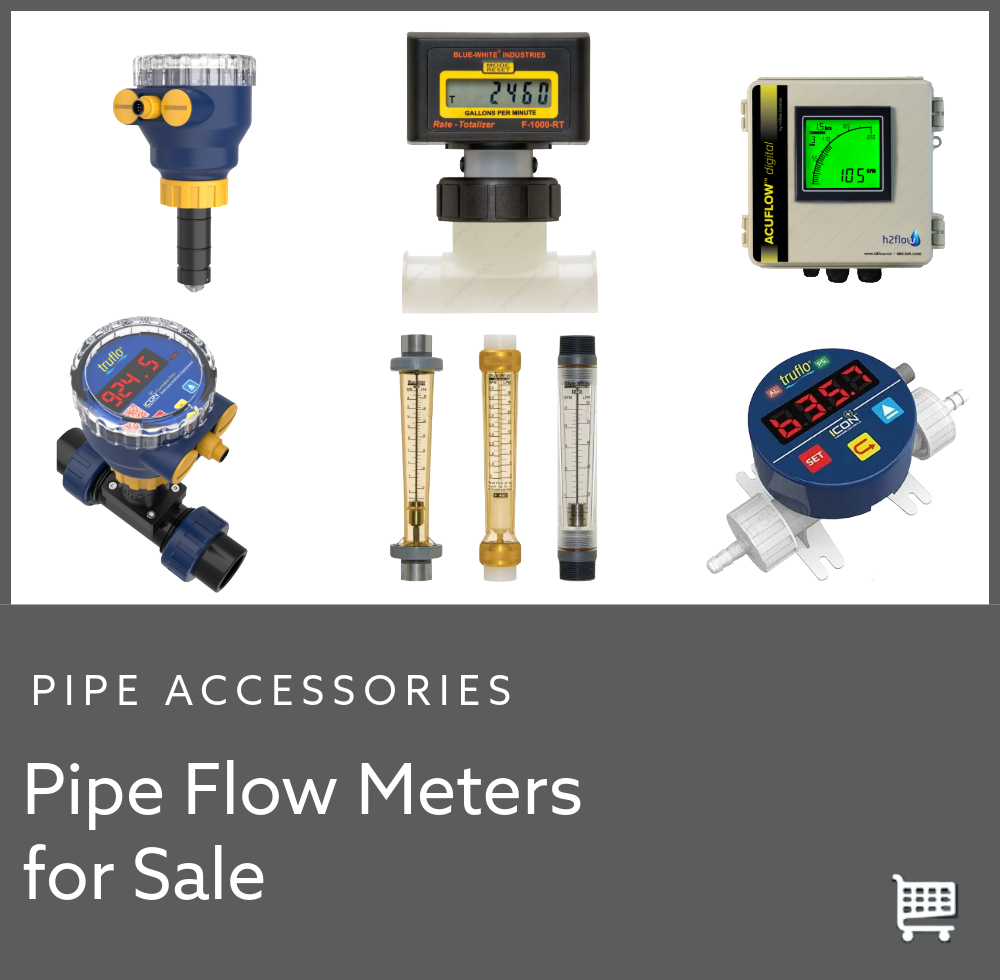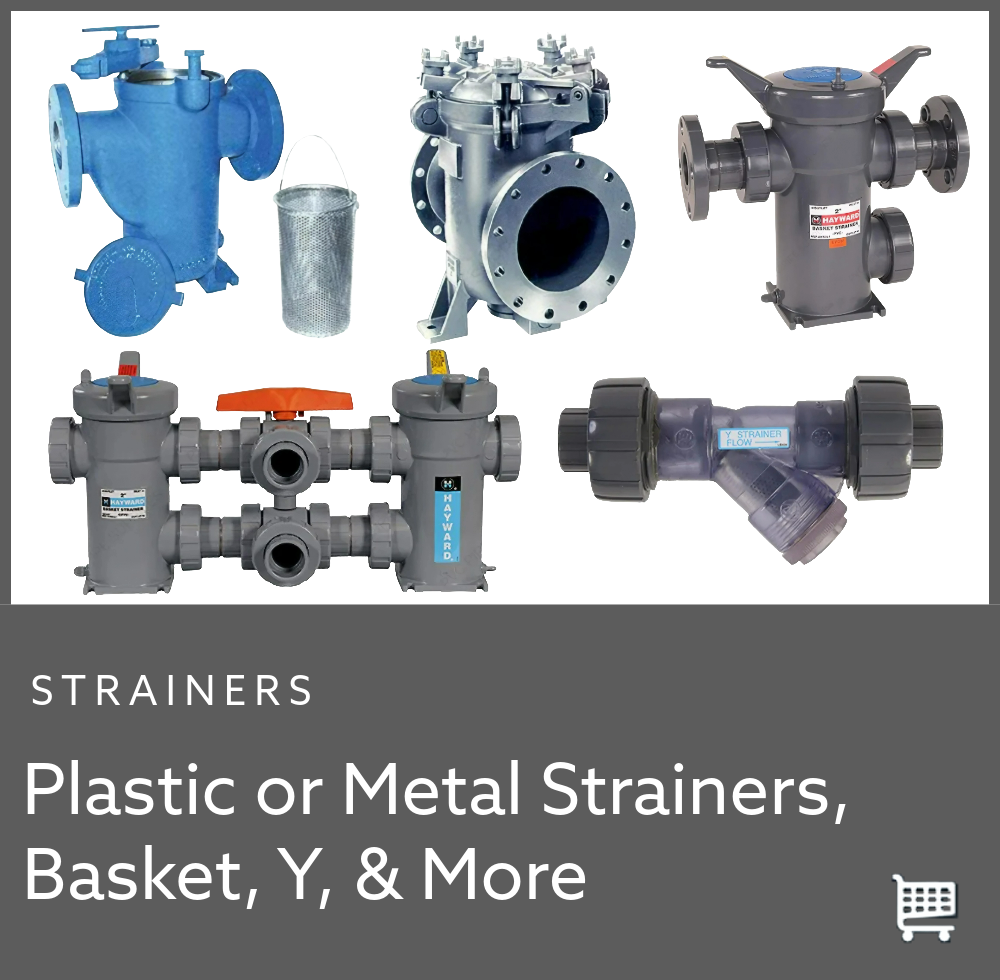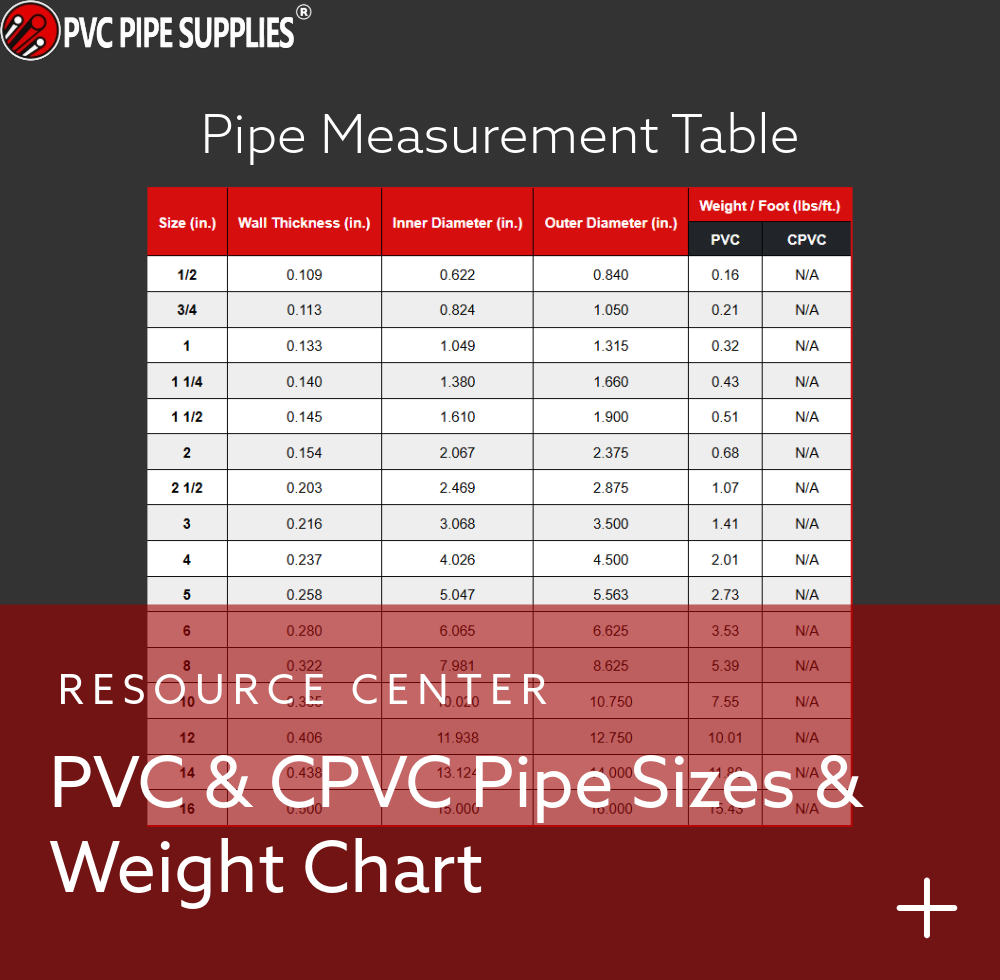 |
Industries rely on precise control to measure and monitor the flow of water, chemicals, ingredients, and gases. The key to achieving this? Flow meters—an essential tool for accuracy and safety. From industrial facilities to commercial businesses and municipal operations, flow meters ensure fluids are managed with precision and are an investment into the reliability your operations demand. Flow meters are more than just measuring devices—they are a core component of modern fluid management. By monitoring flow rates for ideal conditions and detecting irregularities, flow meters keep systems running at peak performance and help prevent waste, thereby conserving resources. From usage accountability to optimizing chemical dosing, flow meters contribute to reliability and precision in countless applications. |
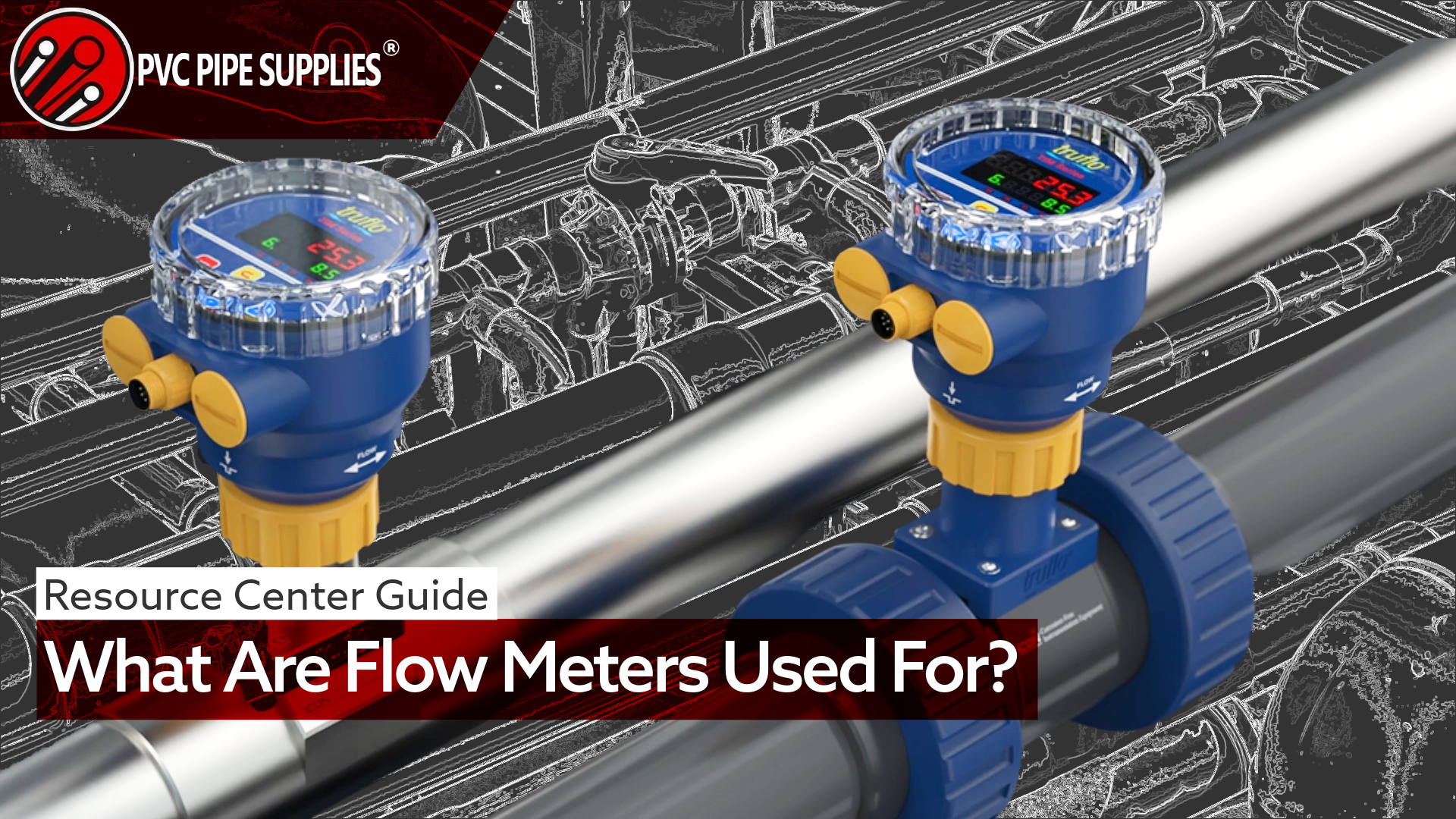

Industries rely on precise control to measure and monitor the flow of water, chemicals, ingredients, and gases. The key to achieving this? Flow meters—an essential tool for accuracy and safety. From industrial facilities to commercial businesses and municipal operations, flow meters ensure fluids are managed with precision and are an investment into the reliability your operations demand.
Flow meters are more than just measuring devices—they are a core component of modern fluid management. By monitoring flow rates for ideal conditions and detecting irregularities, flow meters keep systems running at peak performance and help prevent waste, thereby conserving resources. From usage accountability to optimizing chemical dosing, flow meters contribute to reliability and precision in countless applications.
Why Are Flow Meters Used?
Flow meters measure flow rates, monitor conditions, and detect irregularities to keep systems running efficiently. They prevent waste, conserve resources, and ensure accuracy in applications like usage tracking and chemical dosing. Flow meters play a central role in the consistent and accurate operation of plumbing systems. They allow for visualization of real-time data on fluid flow, which would otherwise be guesswork. This in turn helps operators optimize performance and maintain safe operations. Below are the top reasons why flow meters are used.
Monitoring and Measurement
One primary function of flow meters is to track the flow rate and total volume of fluids passing through a pipeline. This is essential for maintaining systems and identifying irregularities. For example, in municipal water systems, flow meters monitor daily water usage and provide the precise data needed to balance supply and demand. In industrial processes, they help verify the correct quantities of chemicals or raw materials are being processed to ensure quality success as well as prevent errors or accidents that can be costly or dangerous.
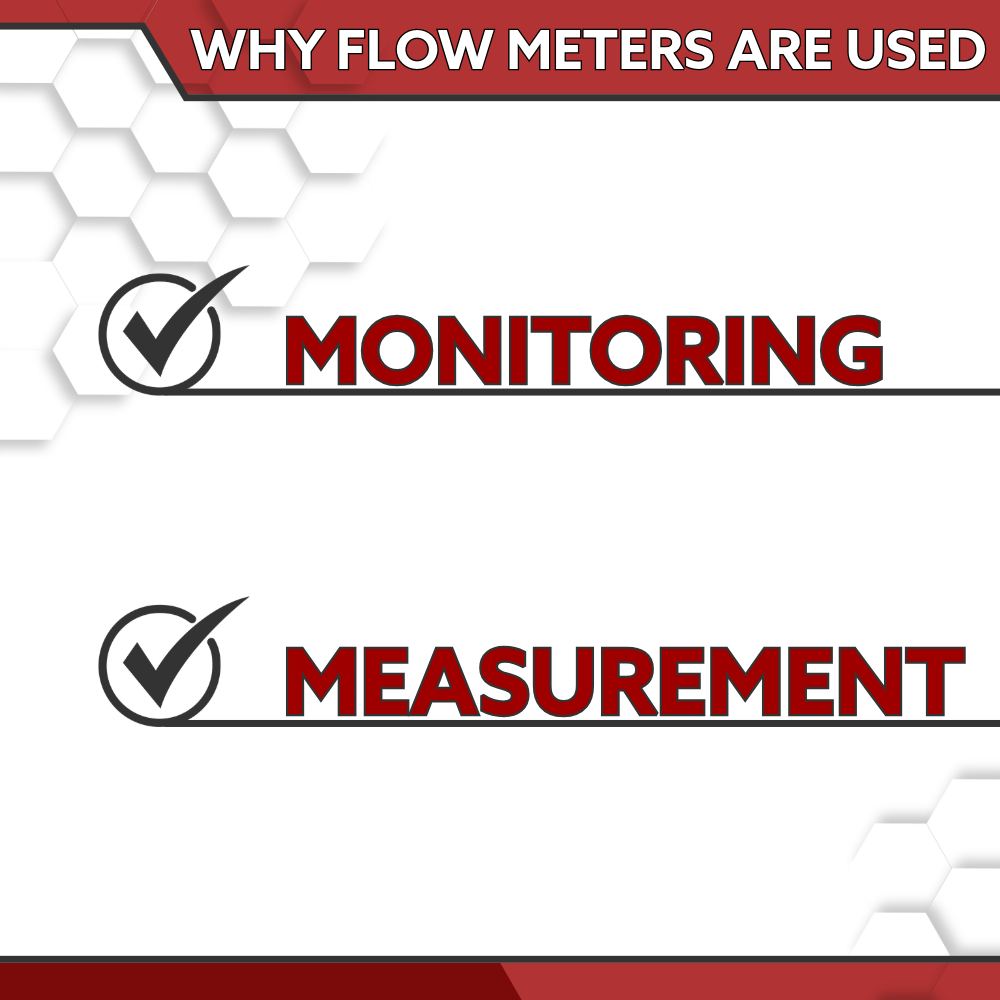

Control and Optimization
Flow meters enable accurate regulation of an operation’s fluid flows. Through continuous data, they allow owners or system operators to make informed adjustments in real-time. As a real world example, manufacturing facilities utilize flow meters to help manage the flow of cooling water needed to prevent machinery overheating as part of work protocols for uninterrupted operations. Similarly, in ventilation systems or fume scrubbers used to manage particulates, vapors, or waste exhaust generated onsite, flow meters are used to verify active and sufficient air flow.
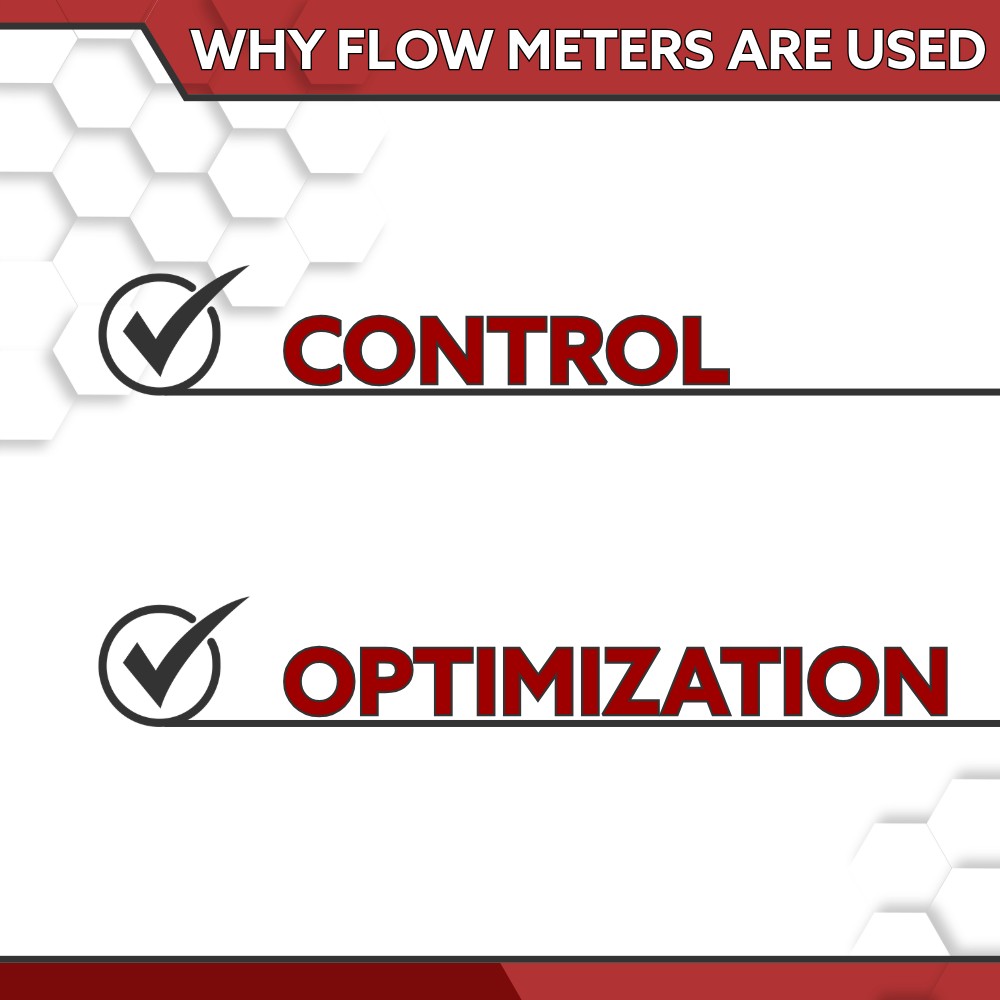

Resource Conservation
Detecting leaks or unnecessary waste is another benefit and reason why flow meters are used. Knowing exactly how much fluid is flowing through a system allows losses to be identified and corrective action to be taken quickly. As an example using residential plumbing, a flow meter can alert homeowners to a hidden pipe leak due to an abnormal increase in water usage, which would help reduce water waste and save on utility bills. On a larger scale, farmers with agricultural systems use flow meters to monitor their irrigation water usage to help conserve resources and make sure water is delivered only where and when it is needed.
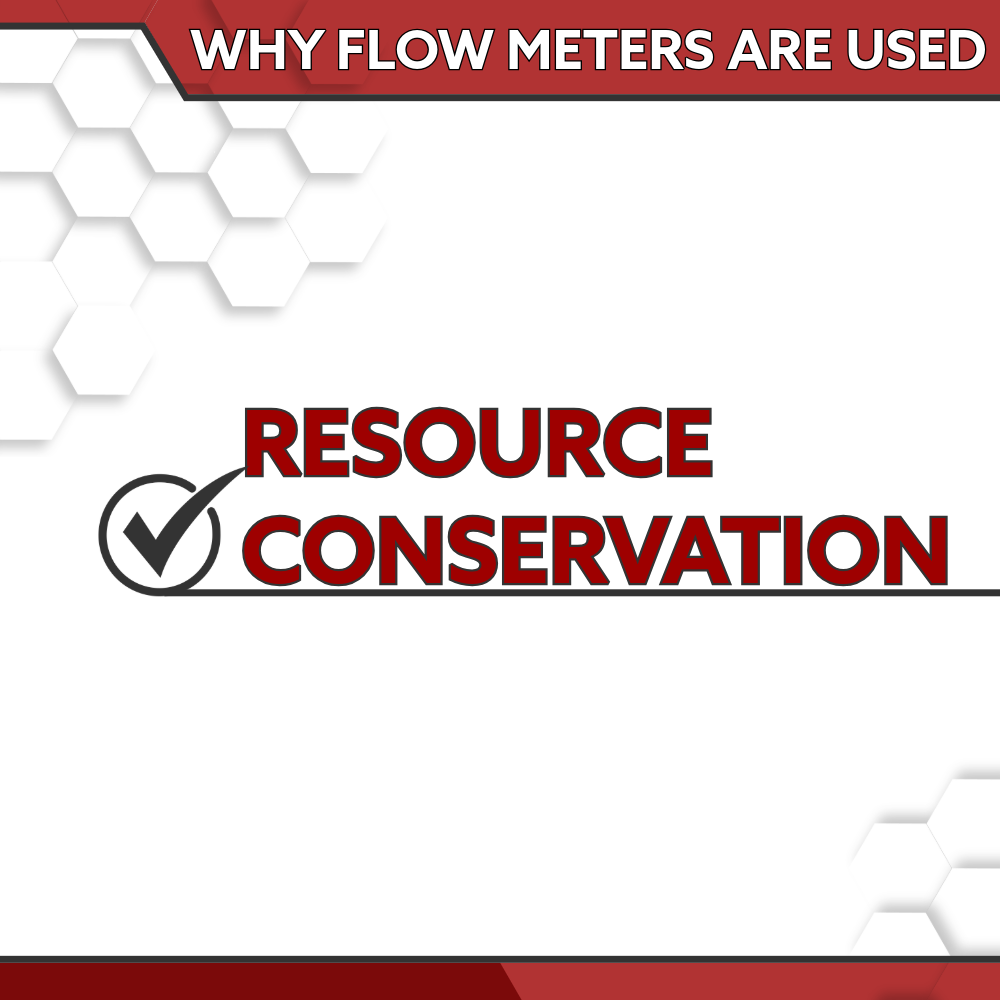

Compliance with Regulatory Standards
Many industries, such as chemical processing and food and beverage manufacturing, must comply with regulatory standards concerning how their fluids are handled as well as report specific volumetric usage data. Flow meters enable compliance by providing accurate, traceable records of daily operations. To demonstrate, wastewater treatment plants use flow meters with data loggers to document treated water discharge volumes and therefore meet their overseeing environmental regulations and avoid fines or penalties.
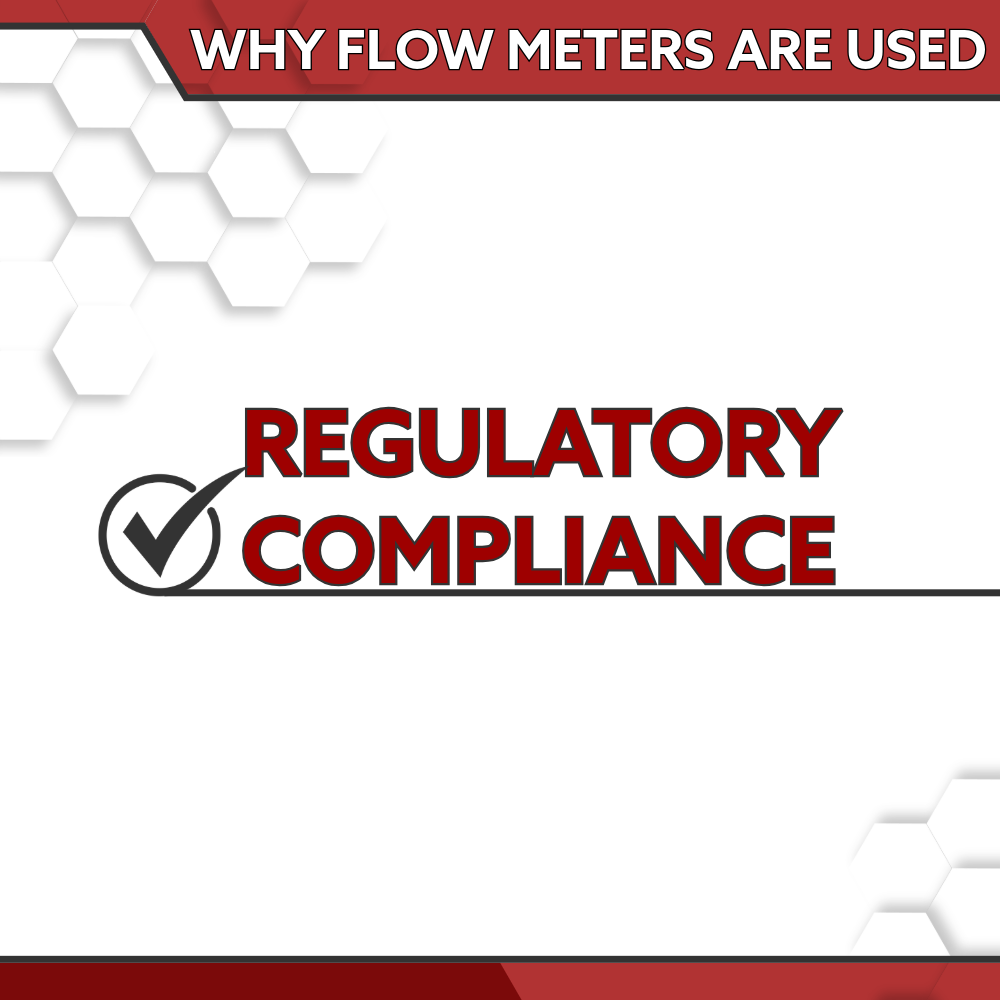

Safety
Flow meters are essential in the monitoring of potentially hazardous materials, keeping plumbing systems safe, and preventing accidents. They can detect irregularities, such as unexpected surges or low flow rates, that could indicate a leak or a faulty system. As an example, chemical plants use flow meters to monitor the flow of corrosive or toxic fluids and are often used together with trigger alarms if unsafe conditions arise. This helps protect both workers and the environment from harm. Top-of-the-line flow meters and accessory products used in pipeline systems provide early warnings of leaks, which can prevent environmental disasters and minimize damage.
As a result, flow meters are invaluable tools for monitoring and managing fluid flow across various applications. They provide precise data for tracking usage, optimizing systems, conserving resources, reaching compliance, and maintaining safety. By integrating flow meters into their operations, businesses can achieve greater efficiency, long term savings, and peace of mind.
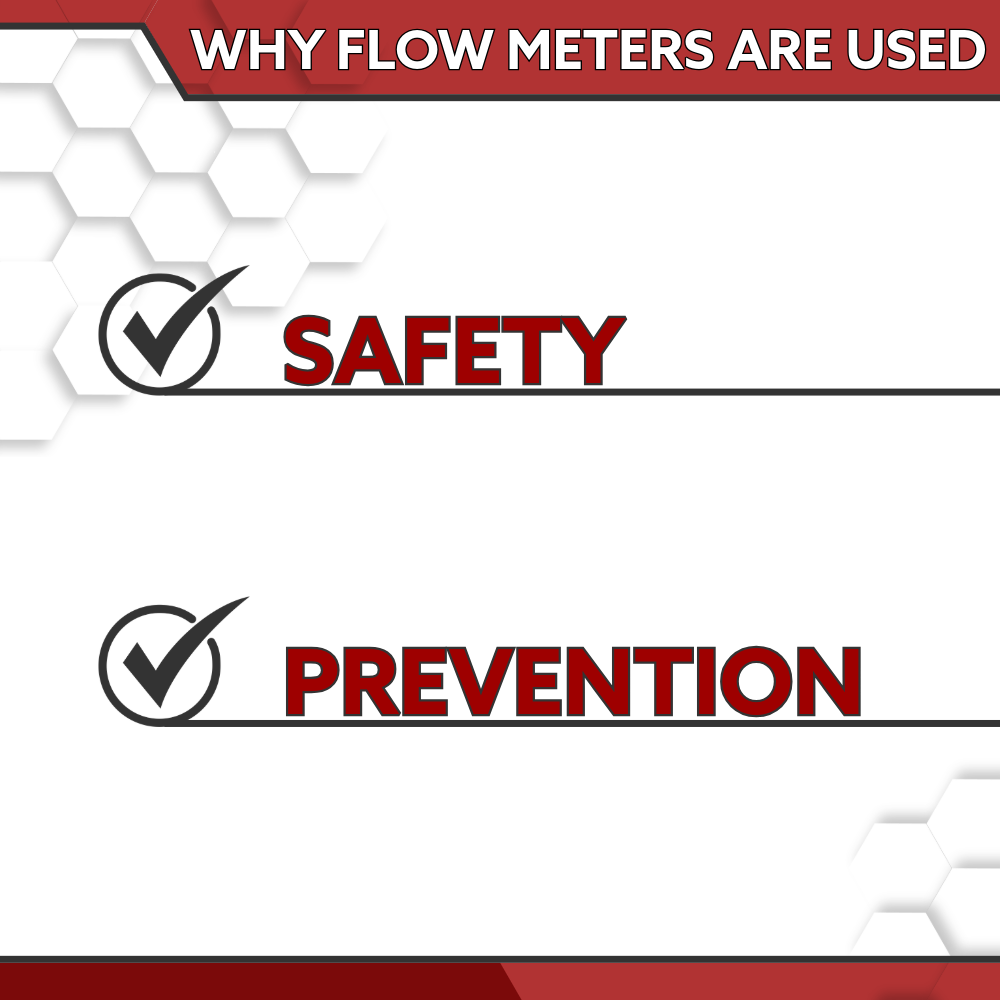

Flow Meter Applications
Flow meters are tools for precise fluid measurement and control. Their versatility allows them to be utilized across commercial, industrial, municipal, and specialized plumbing systems. Below, we’ll explore the applications of flow meters and the role they play in each.
Commercial and Industrial Applications
Flow meters are commonly used in commercial and industrial settings to enhance efficiency, precision, and safety.
Agriculture
In agricultural irrigation, whether farm fields, greenhouses, or hydroponics, flow meters monitor water usage, nutrient delivery, and chemical distribution. wide farmland zones, ensuring optimized distribution to conserve water. Growers can use this data to fine tune irrigation schedules and determine how much product was used, which can help reduce waste, improve crop yields, and inform on when it’s time to reorder stock.
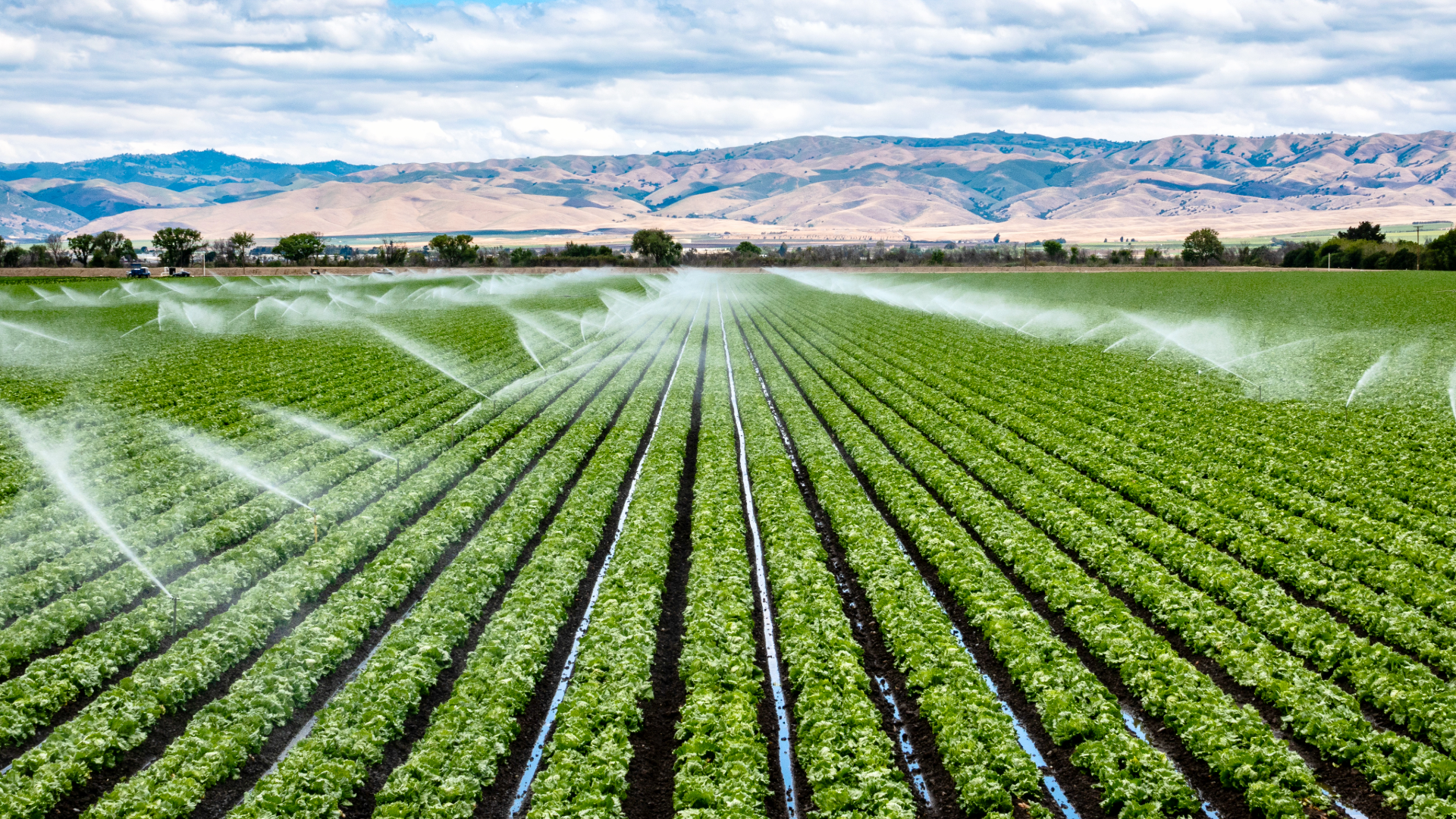

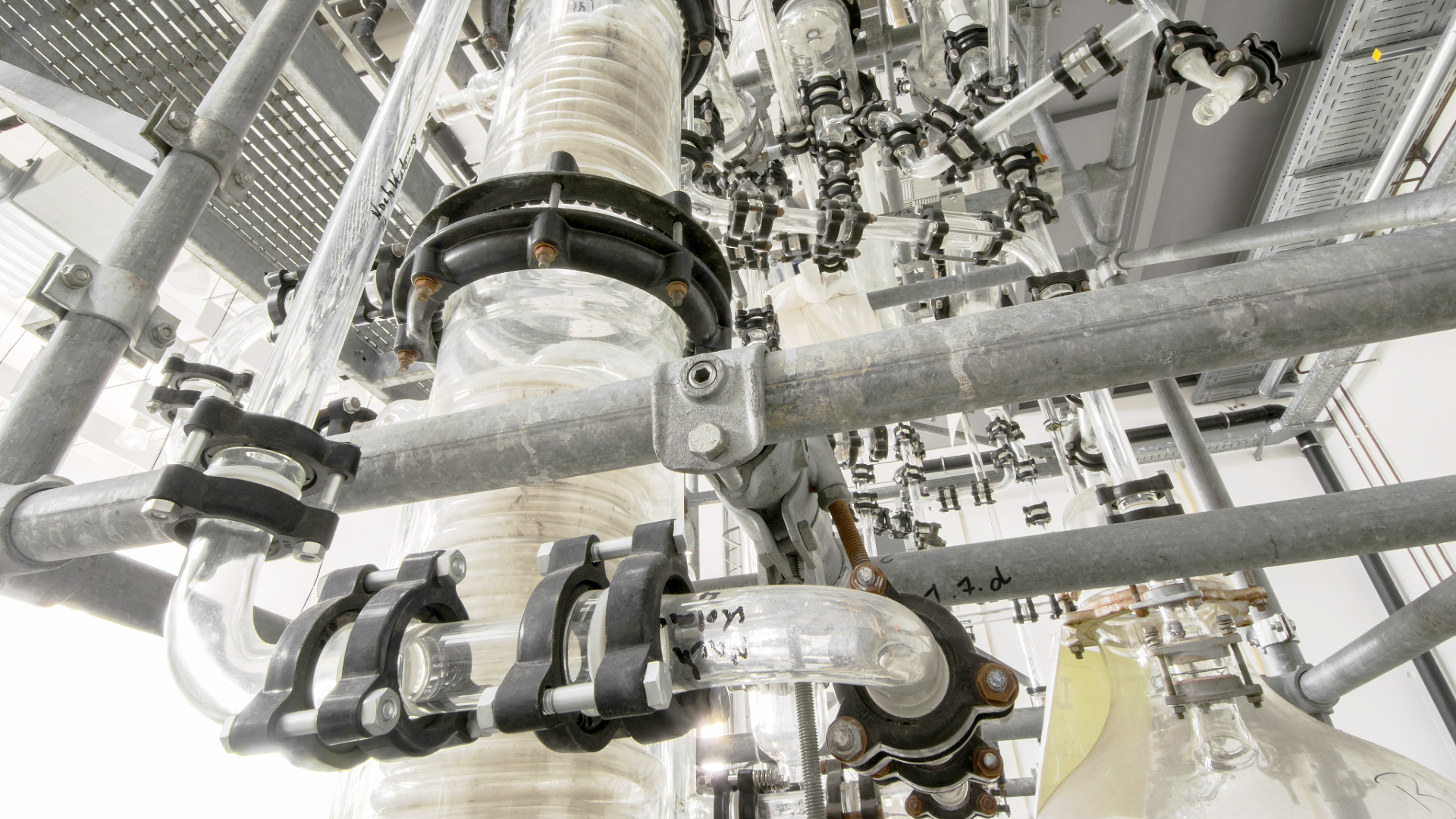

Chemical Processing
Accurate measurements are critical in chemical processing, where precise flow rates often dictate the success of products, formulations, and results. Flow meters monitor chemical flows and prevent over or under dosing. For example, magnetic flow meters are often employed in corrosive environments to measure reactive chemicals reliably
Food and Beverage Industry
Consistency and quality are vital to the food and beverage industry. Flow meters monitor the flow of liquids such as milk, juices, syrups, and other ingredients to ensure accurate proportions. For example, digital flow meters in bottling plants can measure and track product and batch completions.
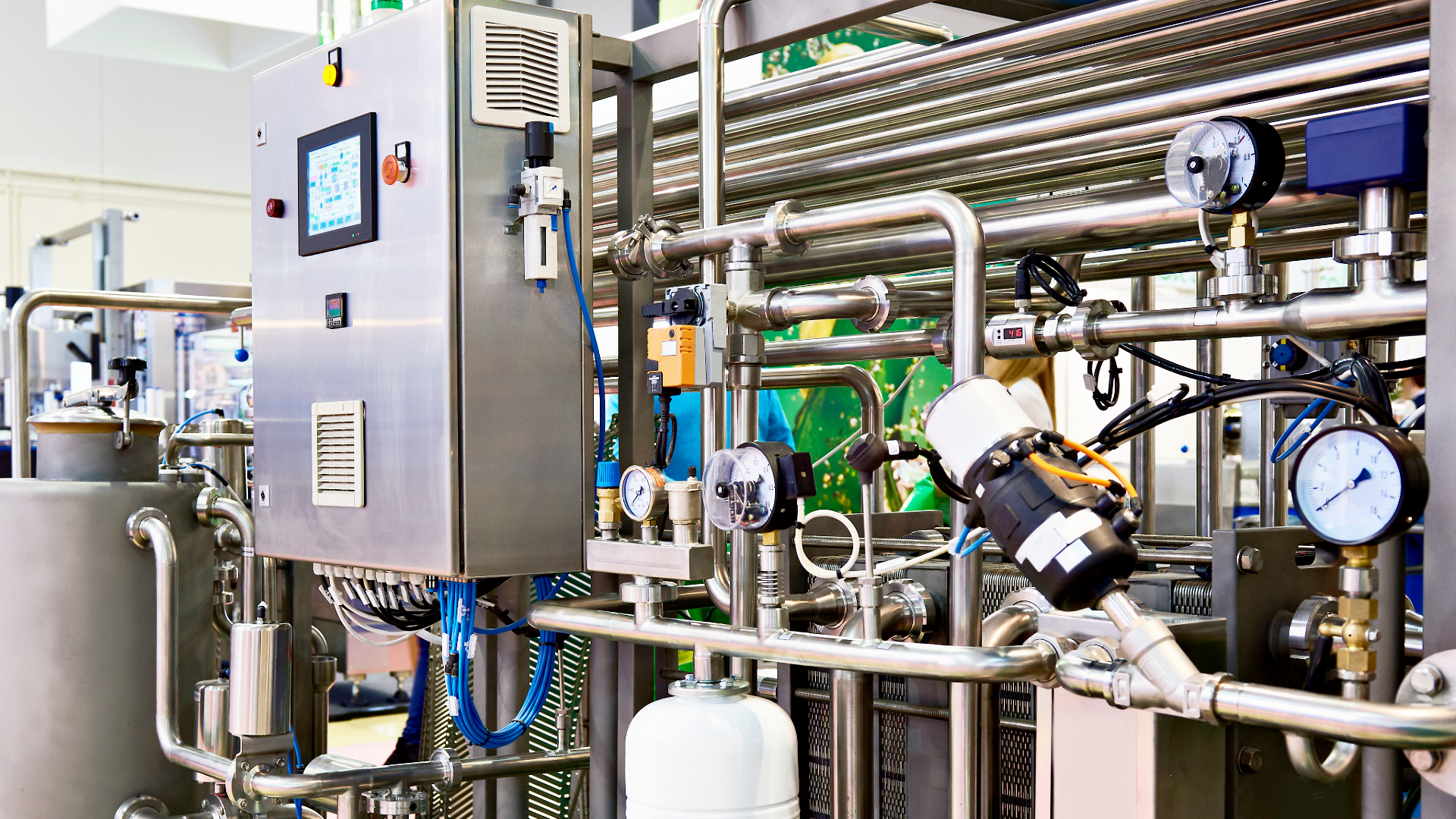

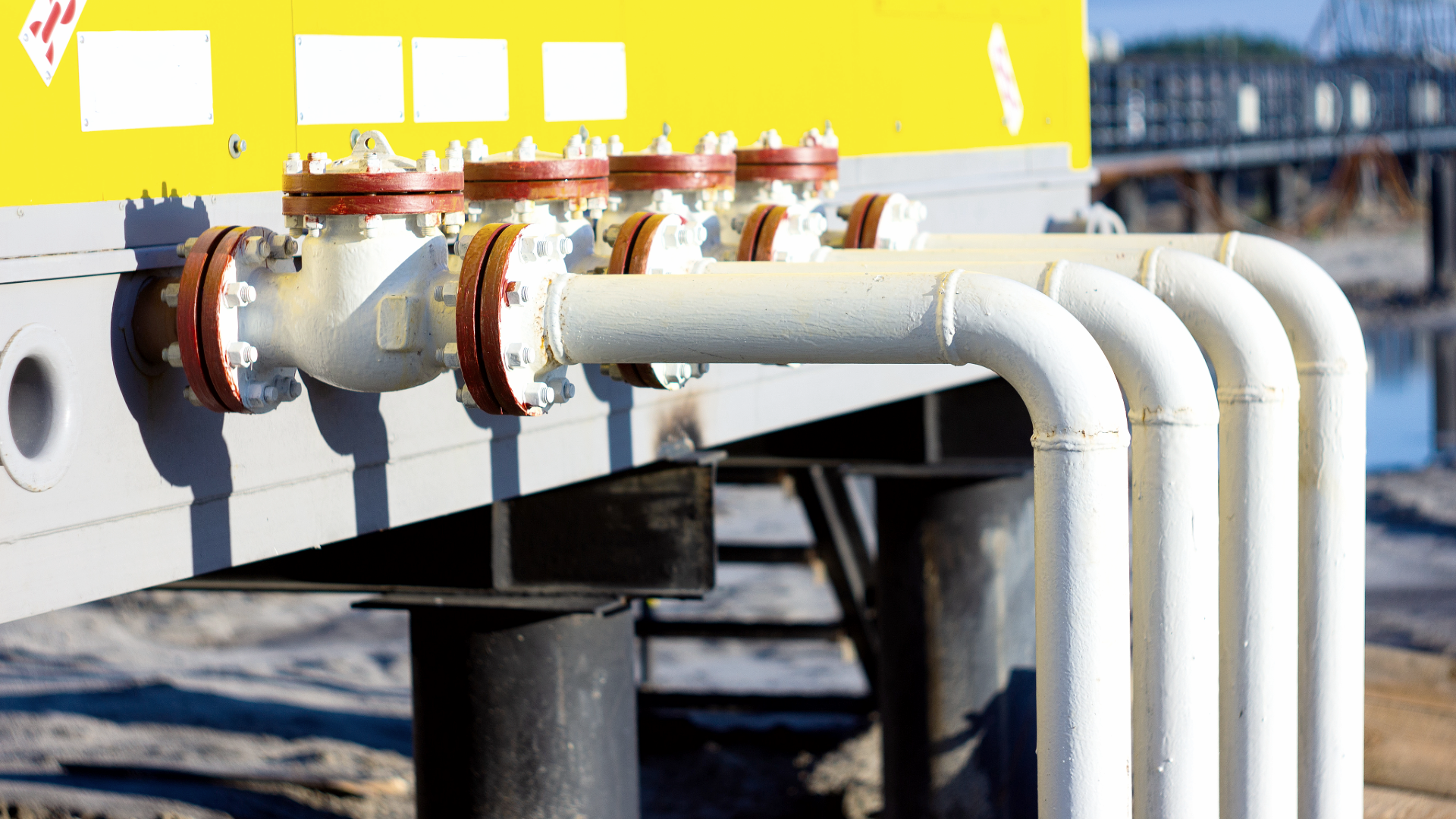

Oil and Gas
Flow meters monitor the safe transportation of oil, gas, and production materials in pipelines. They provide precise measurements capable of logging 100s of gallons per minute to help regulate and record operational flow rates. The paddlewheel flow meter is frequently used to monitor diesel or crude oil flow in pipelines.
Manufacturing
Manufacturing relies on flow meters to monitor cooling water, lubricants, and other fluid systems integrated with machinery or required for activities. Real time digital flow meters are often used to maintain efficiency as well as identify and correct anomalies.
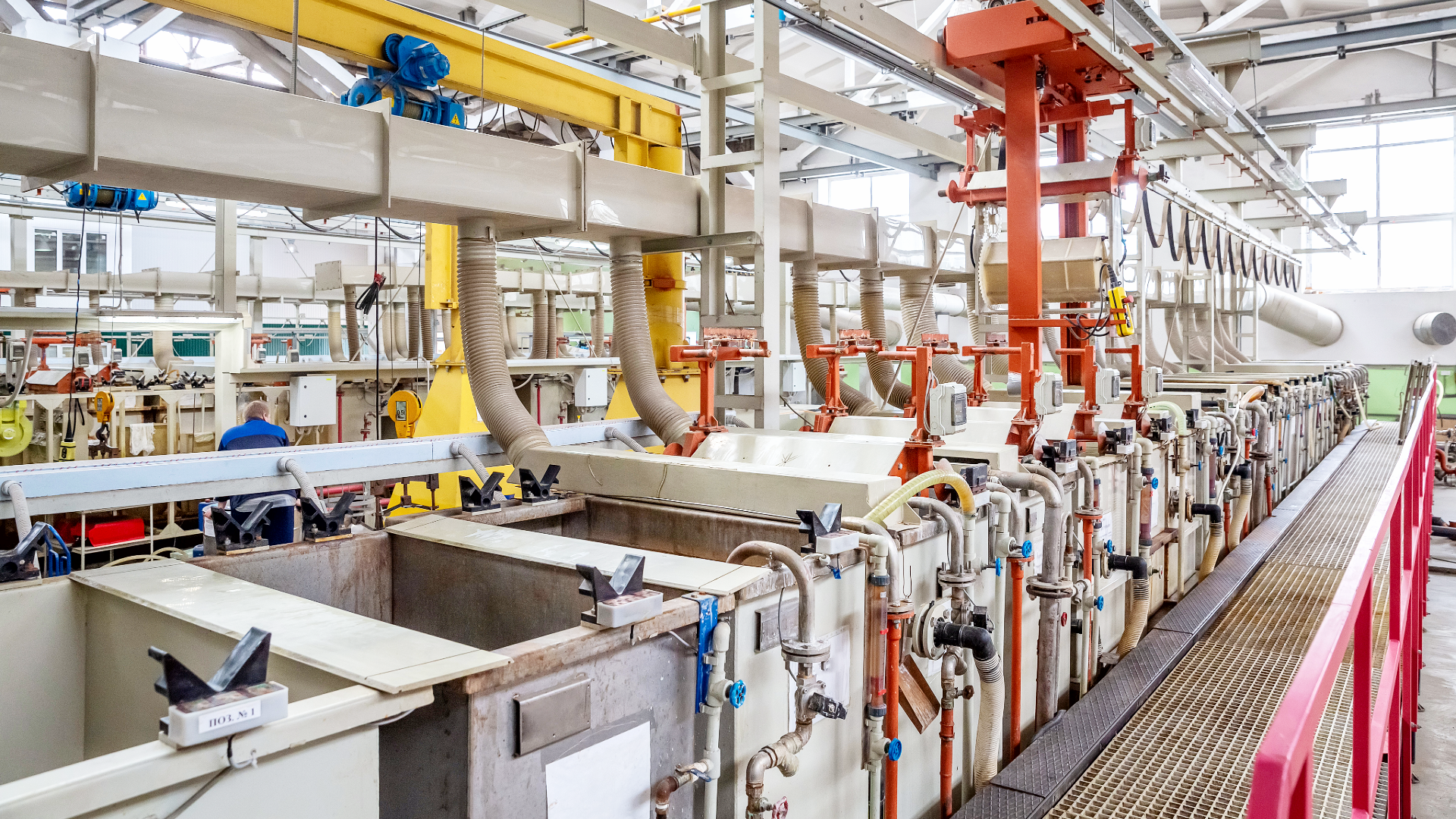

Municipal Applications
Flow meters are utilized in the public sector by the workers and departments run by local city, county, or state governments, often in managing water distribution and treatment.
Irrigation Systems
City managed irrigation systems often employ flow meters to measure regular water use for regular reports or modifications as needed. They are also used to isolate the irrigation system to measure only its water use if it’s part of a property with additional water usage.


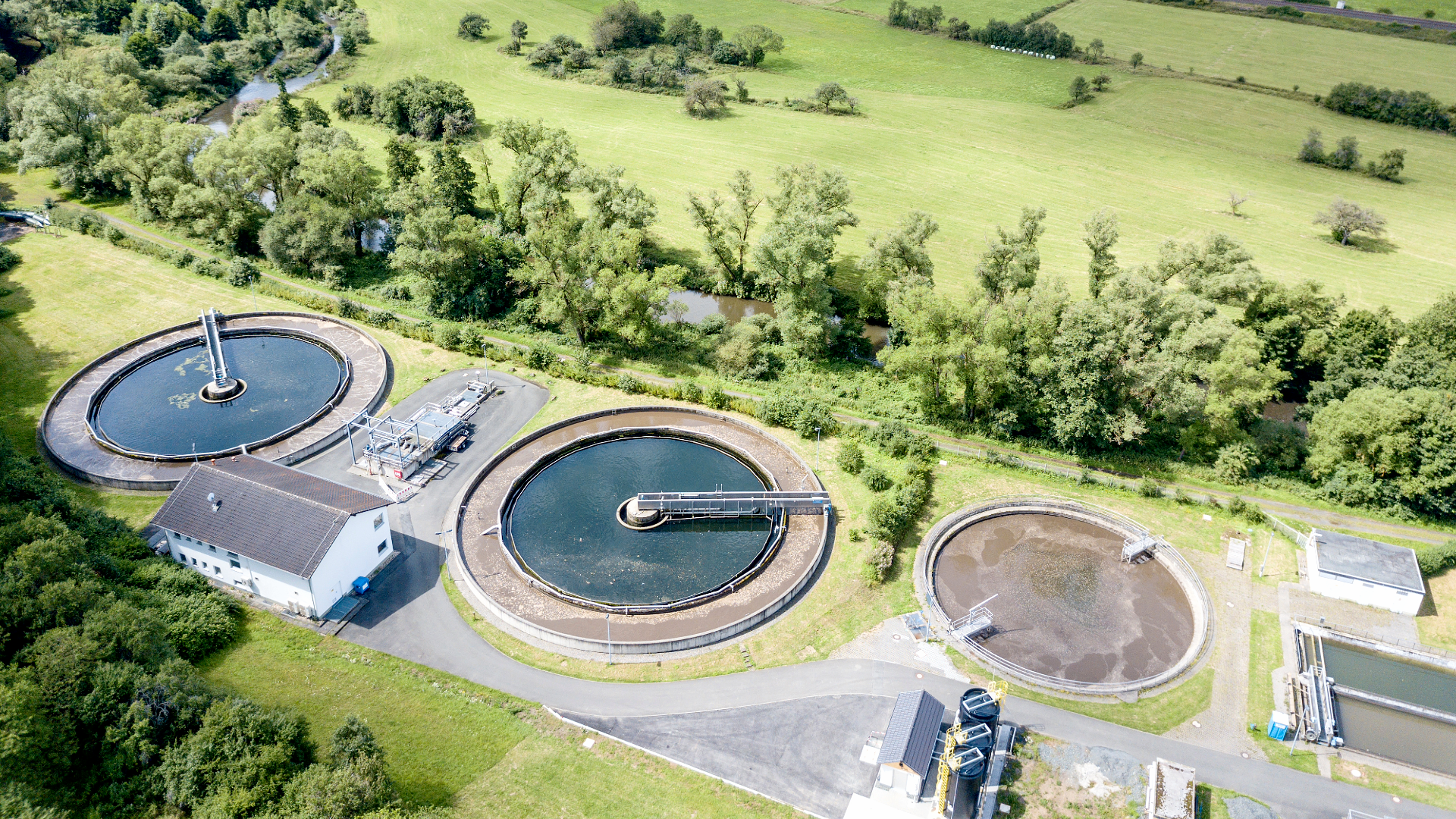

Wastewater Treatment
Municipal wastewater plants depend heavily on flow meters to measure inflow and outflow volumes as well as assist with reaching compliance with environmental regulations. Ultrasonic flow meters, for example, can measure treated water discharge with flow rates up to 8000 gallons per minute (GPM).
Speciality Systems
Reverse Osmosis Systems
Flow meters are an integral part of large scale reverse osmosis systems used in water purification. These systems rely on flow meters to monitor total flow for pure output volume and wastewater volume.
Geothermal Heat Pumps
Geothermal heat pump systems utilize flow meters to monitor the water that circulates through their systems to enable efficient heating and cooling. Accurate flow measurement ensures the geothermal system delivers sustainable energy while avoiding overuse or underperformance.
Flow Meters Offered by PVC Pipe Supplies
PVC Pipe Supplies offers an extensive range of flow meters designed to meet the various needs of commercial, industrial, and municipal applications. With an emphasis on quality and precision, our flow meters are made from durable modern materials for excellent performance across environments, including corrosive and high temperature conditions. Key features and types of the flow meters available from PVC Pipe Supplies include:
Features of Flow Meters
Material Options:
- Acrylic: Lightweight and transparent, ideal for clean water systems and simple applications.
- Polysulfone: High temperature and chemical resistant, perfect for tough industrial processes.
- PVC: Cost effective and versatile, suitable for moderate temperature and pressure systems, often used in irrigation and drainage.
- CPVC: Greater temperature resistance compared to PVC, ideal for hot water and industrial fluid handling systems.
- PVDF: Durable and chemical resistant, built for harsh environments like chemical processing and outdoor use.
Size Range:
- Flow meters fit pipe sizes ranging from 1/4” to 12”, serving systems from small commercial setups to large industrial pipelines.
Installation Types:
- In-Line: Installed directly in the pipe for easy setup.
- Saddle-Mounted: Clamps onto pipelines, no cutting needed.
- Panel-Mounted: Integrates into control panels for centralized monitoring.
Types of Flow Meters
PVC Pipe Supplies offers standout brands like Blue White and Icon Process Controls flow meters, renowned for their precision and versatility. They come in three primary types:
- Mechanical Flow Meters: Durable and easy to use, they measure flow using moving parts like turbines or paddles. See mechanical flow meters.
- Digital Flow Meters: Offer electronic displays, alarms, and advanced features for precise control. See digital flow meters.
- Ultrasonic & Magnetic Flow Meters: Non-intrusive ultrasonic and magnetic flow meters provide accurate readings for specialized applications. See specialized flow meters.
How to Choose the Right Flow Meter
Selecting the right flow meter is essential for ensuring accuracy, efficiency, and reliability in fluid management systems. With a wide variety of flow meters available, the decision should be based on specific application requirements. Here’s a guide to help you make the best choice.
1. Pipe Size and Material Compatibility
The size of your piping system is a primary factor when selecting a flow meter. Flow meters must fit the diameter of your pipes for accurate measurements and seamless installation. For example:
- Small water irrigation systems may require flow meters designed for pipe sizes as small as 1/4 inch.
- Industrial applications, such as chemical pipelines, may need flow meters suitable for pipes up to 12 inches in diameter.
- Also consider the material compatibility of the flow meter with the fluid and pipes used in the system. For harsh or corrosive chemicals, flow meters made from PVDF or polysulfone are better options due to their excellent chemical resistance.
2. Flow Rate Requirements
Understand both minimum and maximum flow rates when selecting a flow meter. Every meter is designed to operate within a specific flow range, and using a meter outside of its range will lead to poor performance and low accuracy. For example:
- High capacity municipal systems may require meters capable of handling up to 8,000 gallons per minute (GPM).
- For specialized low flow applications, such as chemical dosing, a digital flow meter with precision at rates as low as 0.1 GPM might be needed.
3. Environmental Conditions
The working environment can also play a role in selecting the right flow meter. Details such as temperature fluctuations, exposure to corrosive chemicals, or outdoor installation conditions are important considerations:
- For environments with corrosive fluids, magnetic or ultrasonic flow meters made with PVDF components are highly effective.
- Outdoor applications often rely on tough materials like polysulfone, which can withstand UV exposure and high temperatures.
- Some flow meters are recommended for indoor use only; always check and verify.
4. Budget and Maintenance Needs
Balancing budget constraints with performance requirements is another key factor. While mechanical flow meters tend to be cost effective, digital meters offer advanced features like batch processing and alarms, which may justify their higher price in complex systems. Also, consider long term maintenance:
- Simple mechanical flow meters might require occasional cleaning but have fewer electronic components to maintain.
- Digital meters may require calibration and periodic checks but provide greater operational flexibility, making them ideal for high throughput industries such as food and beverage production.
5. Importance of Expert Consultation
Consulting professionals can help you choose the best flow meter for your specific needs. Experts can provide insights on industry regulations, installation challenges, and advanced features. For example:
- Municipal water systems may need precise flow meters that can meet regulatory compliance and needs for accurate reporting.
- Chemical handling applications may benefit from expert recommendations for non-intrusive ultrasonic meters that reduce compatibility concerns.
Trusted Flow Meters from PVC Pipe Supplies
Flow meters are indispensable tools in plumbing systems and fluid management, offering precision, efficiency, and reliability across a wide range of applications. From monitoring water usage in residential homes to optimizing chemical dosing in industrial processes, these devices play a critical role in conserving resources, ensuring compliance, and maintaining system safety. Their versatility and advanced features make them a vital component in modern fluid control systems.
PVC Pipe Supplies provides a large selection of high quality flow meters, including trusted brands like Blue White Industries and Icon Process Controls, with options for mechanical, digital, and non contact models. Our flow meter products have been engineered to meet the needs of various industries with advanced functionality, robust materials, and reliable performance. Whether you're managing municipal water systems, refining oil and gas, or integrating flow meters into specialized setups, PVC Pipe Supplies has the perfect solution for you.
Explore the full range of flow meters available at PVC Pipe Supplies to find the right fit for your specific needs. Visit our resource center for additional information or contact PVC Pipe Supplies for expert guidance and start optimizing your fluid management systems today.
